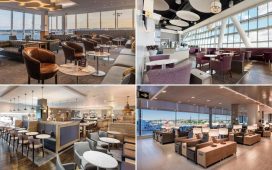When Lokaal, a cooperatively run vegan cafe specialising in locally sourced produce, opened in 2014 in Ghent’s town centre, it charged just €8 for a main course. To keep prices low, Arno de Mol, the cafe’s owner, ditched costly vegan staples like avocados in favour of doing creative things with local produce such as celeriac, and served the dishes on mismatched crockery from charity shops. Eventually, however, living for his principles took its toll, and with the support of a commercial partner, de Mol increased his prices – although he was disappointed to see that even a €2 rise has made it harder to reach people on lower incomes.
De Mol typifies the local, grassroots economy that is expanding in Belgium’s third-largest city. Ghent has long been known for its student population and left-wing politics, but increasingly it is developing a reputation for socially conscious, eco-friendly food and shopping. Part of this is down to the town’s youthful demographic.
“Young people are more conscious of the fact that the earth and its resources aren’t as endless as people thought 20 years ago,” says de Mol. He also credits the support of the city council, which has just appointed him to advise on a new online platform, Vanier (van hier means “from here” in Flemish), which encourages restaurants and businesses to buy from local farmers and producers.

Lokaal is just one of a number of quality plant-based, socially conscious restaurants in Ghent. Others include vegan cafe Barbiet, all-you-can eat vegan joint Konkommertijd, Cafe de Walrus, a stylised rendering of the traditional Belgian bruin café, and Lekker GEC, a veggie cooperative. At organic food market Beo Versmarkt, customers can sip natural wine as they peruse locally sourced groceries. All aim to foster a gezellig vibe (the Dutch answer to hygge). De Mol’s aim is for Lokaal to feel like “our living room” – and lots of the enterprises are involved in social projects, such as a scheme enabling customers to purchase items for donation to the homeless.
On the same street as Lokaal is Just Hazel Feelgoodstore, a new boutique selling fairly made clothes and jewellery. Owners Siel Vandamme, Fien Drieghe and Nina Spooren haven’t been able to quit their day jobs yet, but when I meet them at the shop on a Saturday evening, they tell me, over glasses of Roomer, a delicate local elderflower liqueur, that it’s important boutiques like theirs exist, even if it requires a few sacrifices.
“Our parents raised us to think about food and clothes and where they come from,” says Vandamme. “We wanted to sell clothes like in H&M but fairly and locally made.” Other shops flying the ethical fashion flag in the city include Mieke and A.puur.a, purveyor of independent sustainable designs; and local gender-neutral lingerie designer La Fille d’O, which champions body positivity by using customers of all shapes and sizes as Instagram models.

Just Hazel itself specialises in carefully curated European fair fashion brands in affordable, youthful styles. The stock reflects the city’s laid-back sense of style: trend-led but not as high-end or polished as neighbouring city and fashion capital Antwerp. “It’s a combination of second-hand and new,” says Vandamme. Spooren adds: “And it’s got to be easy to wear on a bike.”
Like people across Flanders, Ghentians are bike-mad. The streets are stuffed with parked bicycles – often left unlocked. The airy Bidon Coffee & Bicycle is arguably the epicentre of the city’s cycling culture, but there’s also Tuub, a quality bike shop with an environmental message, and Plum, a celebrated Flanders institution.
The city is home to 44,000 students, and their influence can be seen in the city’s laid-back nightlife, which usually involves new and unsigned bands playing in casual cafe venues. Eric Smout runs popular music promoter Democrazy. Over a high-strength Belgian craft ale in the recently opened Bar Mirwaar, a moodily lit cafe which regularly hosts funk, soul and jazz jam sessions, he tells me that Ghent is a breeding ground for new music talent in Belgium. “Ghent has an artistic feel,” he says. “You have a lot of artists and bands here, lots of free concerts – and you can hop around and see what’s happening.”

This is in part thanks to the local music schools, as well as a proliferation of relaxed cafe venues such as Trefpunt and Charlatan, outdoor pop-up Dok, and larger spaces such as former socialist party headquarters-turned art centre Vooruit (whose beautiful, high-ceilinged bar serves an array of craft beers). Outdoor concerts showcasing new talent are a key feature of Gentse Feesten, an annual week-long summer festival (17-26 July 2020). Ghentians joke that babies born nine months later in April are the festival’s children.
One influential venue is Zebrastraat, an unusual development that combines private housing with an eclectic contemporary arts programme. Its new bar, Xyz Lounge, has won plaudits for its dramatic design by Parisian “starchitect” Didier Faustino, which features “gender neutral pink” walls with embedded Sonos speakers. Xyz Lounge also hosts regular of events – including outdoor concerts next to a manmade beach in summer, and inside a cosy forest cabin in winter. In unpretentious Ghentian style, it also puts on a weekly bridge club for the elderly.
Democrazy is also working on opening a venue of its own to respond to the city’s voracious appetite for live music – from indie rock to techno or contemporary jazz. New bars are popping up all the time, according to Smout. I ask him why there have been so many recent openings and he raises a glass of Bar Mirwaar’s home brew: “The combination of beer and music – it’s very good.”














